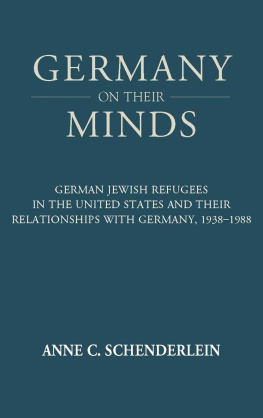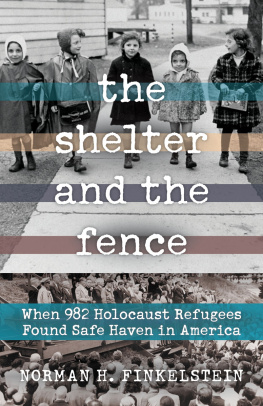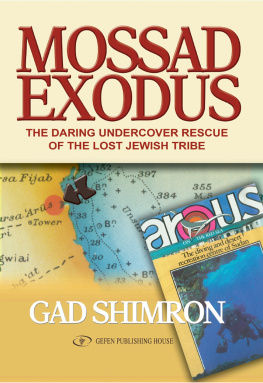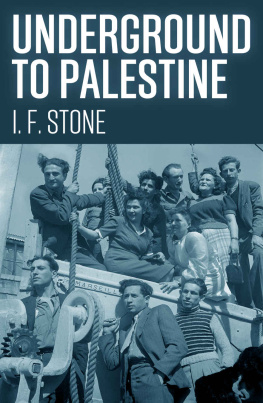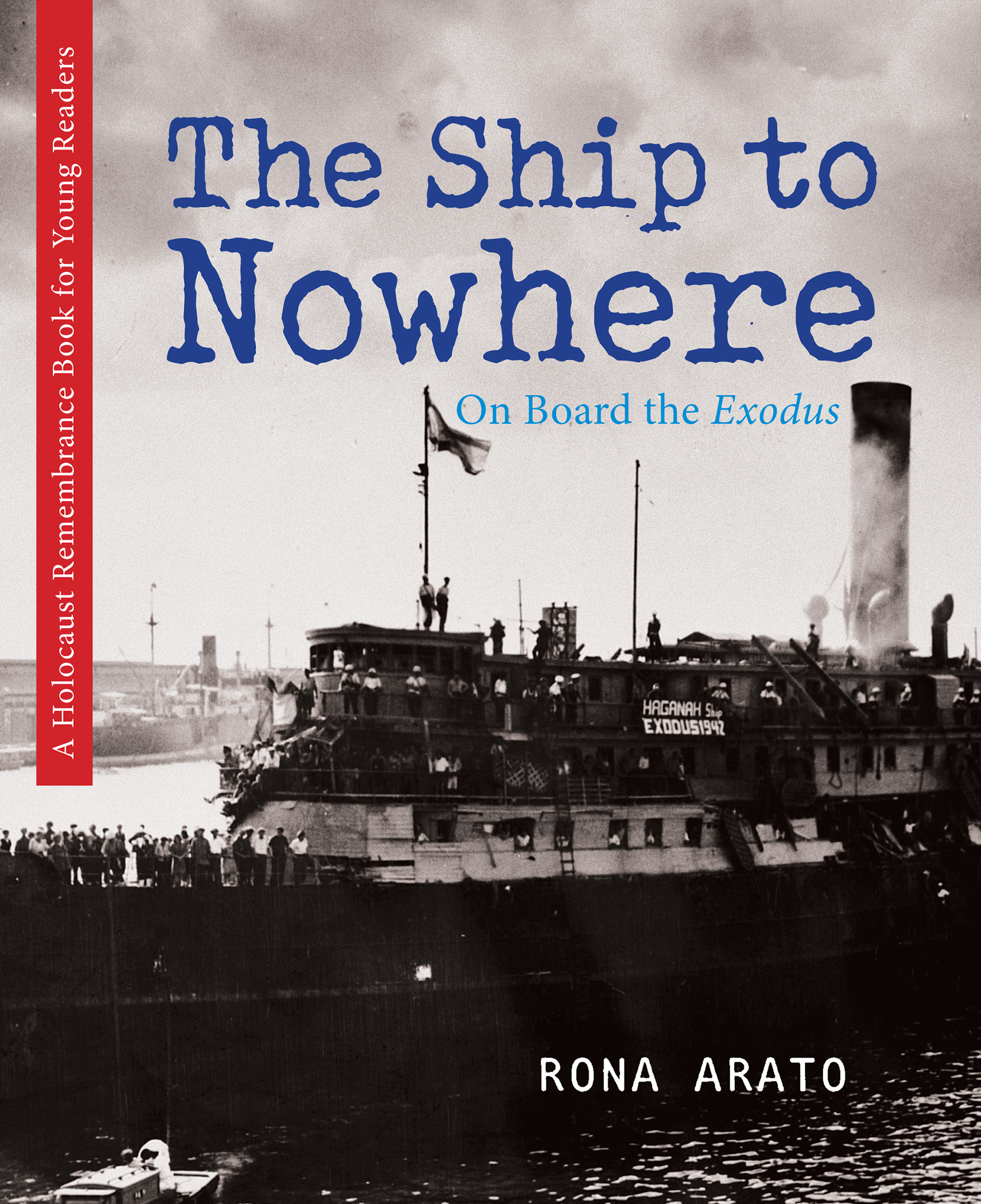Refugee from the French refugier , to take shelter.
The word has come to mean a person who flees to a foreign country to escape danger or persecution.
The story of Rachel Landesman, the Exodus 1947, and its brave passengers and crew is especially relevant today because of the worlds ongoing refugee crisis. Millions of refugees around the world continue to seek safe havens where they can live in dignity and freedom. Whether they travel on foot, in boats, rubber rafts, or other vehicles, their journeys are fraught with fear, danger, and uncertainty. These people are fleeing war, poverty, and discrimination similar to the forces that set Rachels story in motion after World War II. For most of the Jews of Europe trying to escape the Nazis, there was no safe haven. They had nowhere safe to go and as a result, six million people were killed just because they were Jews.
After World War II, international relief agencies set up Displaced Persons (DP) camps to help survivors. Today there are many similar refugee camps where men, women and children from war-torn countries live under terrible conditions. Like Rachel and her fellow passengers did almost 70 years ago, they wait in desperation to be accepted into a country where they can rebuild their lives. By looking to the past, we can better understand the need to help people of all religions, races, and cultures who seek a new home where they can live in peace and freedom.
chapter 1
A Ship of Refugees
Ste, France, July 11, 1947
Rachel Landesman stood on the dock at Ste Harbor staring up at the ship that would take her to the land she had dreamed about: Palestine. I am not afraid, she told herself. But she knew she was lying. This was going to be a dangerous journey. They were boarding late at night in secret because the British, who controlled Palestine, would not allow Jews to immigrate there. She took a deep breath. The air was hot. It smelled of salt, rotting fish, and oil.
Despite her fears, Rachels heart was filled with hope. They were leaving Europe and the horror of war behind. They were going to Eretz Yisroel , the ancestral land of the Jewish people. There, for the first time in their lives, they could live freely and safely as Jews.
I dont want ever to be called a dirty Jew again. Rachel didnt realize she had spoken aloud until her mother hushed her. Im sorry, Mama. Rachel lowered her eyes.
Its all right. Her older sister Hensche soothed her. You only said what we are all thinking.
But we dont have to think out loud. Their mother gave them a stern look.
Hensche squeezed Rachels hand. Rachel looked up at her sister. Hensche was seventeen, six years older than Rachel. She had watched over Rachel for much of her life, especially since the war ended. In the displaced persons (DP) camps where they lived after the war, it was Hensche who comforted her whenever she was sad or frightened. Usually Hensche had a sunny disposition that matched her blonde hair, but tonight her blue eyes were clouded with concern.
Rachel turned to her mother. Everyone said that she and Mama looked alike. They were both small with light brown hair and brown eyes. Rachel admired her mother who had taken them to Budapest, in Hungary, after the Nazis had invaded their own country, Czechoslovakia.
We have made the decision to join this group and go to Palestine, Mama said. I dont want to hear any complaints from you girls. Her mother cupped Rachels face in her hands. I need you to be brave.
I will be, Mama. Rachels eyes filled with tears. I wish Papa were with us. Rachel barely remembered her father who had been taken from them during the war and had never returned.
We all do. Her mothers eyes got misty, but then her expression hardened. But we know that Papa is dead. So we have to be strong, the way he would want us to be.
I wish Batya were here too. Rachel missed her eldest sister who had been her protector in the last months of the war. But Batya had left them to get married and she and her husband had managed to get into Palestine the previous year.
Well see Batya and her husband when we get to Palestine, Hensche assured her. Dont worry, Rachel.
A young woman standing near the gangplank motioned them forward. She had big dark eyes, deeply tanned skin, and thick dark hair that she wore in a ponytail. In her blue shorts, blouse, and leather sandals, she looked different from the people boarding the ship. She looked healthy and proud. Rachel recognized her as Aviva, who had given them instructions earlier in the day. Aviva was a member of the Haganah, the Jewish Defense Force in Palestine, the group in charge of this voyage.
It was their turn to board. Rachel picked up her bundle of clothes and followed her mother and sister. Halfway up the gangplank she stopped and looked down at the dock. Hundreds of people were waiting to come on board. It was eerily quiet. Even the children seemed to sense the importance of this moment. There was no turning back. Whatever lay ahead, Rachel thought, they were on their way to Eretz Yisroel . Taking a deep breath, she stood up straight and marched up the gangplank to the deck of the ship.
chapter 2
Departure
The ship was called the SS President Warfield . In an effort to fool the British, who wanted to keep Jewish refugees from reaching Palestine, it was flying the flag of Honduras and pretending to head for Turkey. Everyone on board knew, however, that their true destination was Palestine. They had been told that the Jewish population was waiting to welcome them.
In all her eleven years, Rachel could not recall a time when her life hadnt been defined by the fact that she was Jewish. During the war, they had lived in constant fear of being sent to a concentration camp by the Nazis. The Nazis had killed her father. And since the end of the war, she and her mother and sister had been refugees without a home, moving from one displaced persons camp to another.



